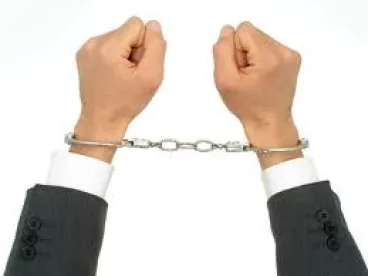Friends and relatives of corporate insiders who knowingly receive and trade on inside information now confront greater exposure for federal securities laws violations. On December 6, 2016, the Supreme Court held in United States v. Salman that “tippees” who trade on material non-public information may be found criminally liable even when there is no evidence of a pecuniary or tangible benefit to the insider who tipped.1 This decision partially overrules U.S. v. Newman, a much-publicized 2014 Second Circuit decision that required proof of a pecuniary benefit to the tipper for insider trading liability to attach.2 While Salman disposes of Newman’s requirement to show a pecuniary benefit to the tipper, it leaves unchanged the requirement, also articulated in Newman, that tippees know of some benefit to the tipper who shared inside information. The decision also re-affirmed the continuing validity of the Supreme Court’s seminal 1983 decision, Dirks v. SEC.3
Background
Liability for insider trading is based upon an insider’s breach of a duty to the owner of material non-public information. When the insider improperly tips that information to a non-insider, the tippee effectively becomes a party to the insider’s breach of duty if the tippee knows or should know that there has been a breach of duty.4 In Dirks v. SEC, the Supreme Court explained that the test for determining if there has been a breach “is whether the insider personally will benefit, directly or indirectly, from his disclosure.”5 Thus, the Court in Dirks held that “[n]ot only are insiders forbidden by their fiduciary relationship [to the corporation’s shareholders] from personally using undisclosed corporate information to their advantage, but they also may not give such information to an outsider for the same improper purpose of exploiting the information for their personal gain.”6
Although a tipper’s personal gain is clearest when he or she receives a pecuniary benefit for providing inside information, the Court in Dirks explained that a personal benefit can be inferred where there is a “gift” of inside information to a close relative or friend, or where there is a “relationship between the insider and the recipient that suggests a quid pro quo from the latter.” As a result, cases against tippees since then have often been premised on evidence of a friendship or a familial relationship between the tipper and tippee.7
In December 2014, the U.S. Court of Appeals for the Second Circuit issued United States v. Newman, which significantly pared back the scope of tippee liability and the common interpretation of Dirks.8 The Second Circuit reversed the convictions of two tippees holding that, to the extent that Dirks permitted the inference of a personal benefit due to a familial or social relationship between the tipper and tippee, “such an inference is impermissible in the absence of proof of a meaningfully close personal relationship that generates an exchange that is objective, consequential, and represents at least a potential gain of a pecuniary or similarly valuable nature.”9 The Second Circuit further explained that, while the “ephemeral” value of the friendship between the tipper and tippee will not suffice to establish the necessary personal benefit to the tipper, the government also need not prove that the tipping resulted in immediate pecuniary gain.10
The Second Circuit’s holding in Newman had an immediate and substantial impact in the Southern District of New York and elsewhere. Criminal defendants sought to withdraw guilty pleas and prosecutors dropped cases against tippees.11 In perhaps the most high-profile example, Preet Bharara, U.S. Attorney for the Southern District of New York, dropped cases against seven employees of SAC Capital Advisors, six of whom had already pleaded guilty. Indeed, following the Newman ruling in December 2014, the office did not secure an insider trading conviction until August 2016.12
United States v. Salman
In United States v. Salman, the evidence at trial showed that the defendant, Bassam Salman, traded on material, nonpublic information he obtained through a chain of tips originating with his brother-in-law, an investment banker.13 That banker shared confidential information about certain mergers and acquisitions with his brother, who then shared this information with his brother-in-law, the defendant Salman, and encouraged Salman to trade on the information.14 The original tipper received nothing of pecuniary value in return from his brother for providing the tip, but, on one occasion, gave the information in lieu of a cash gift. The tipper also wanted his brother to stop “pestering” him. Salman was a remote tippee in the arrangement, but knew that the investment banker tipper was providing the confidential information to his brother.
Salman appealed his conviction to the Ninth Circuit, arguing that, in light of Newman, the government’s evidence regarding the relationship between the brothers was insufficient for a jury to find that the tipper disclosed the inside information to his brother in exchange for a personal benefit. The Ninth Circuit, however—in an opinion authored by Judge Jed Rakoff of the Southern District of New York sitting by designation—upheld Salman’s conviction, explaining that, under Dirks, liability may exist where the “insider makes a gift of confidential information to a trading relative or friend.”15 The Ninth Circuit thereby disagreed with Newman’s holding that insider trading liability requires proof of “tangible” gain to the tipper.16
The Supreme Court’s Ruling
The Supreme Court affirmed, finding that Dirks “easily resolve[d]” the “narrow issue presented.”17 Writing for the Court, Justice Alito explained that “Dirks makes clear that a tipper breaches a fiduciary duty by making a gift of confidential information to a ‘trading relative,’ and that rule is sufficient to resolve the case at hand.”18 The Court reasoned that the tipper personally benefitted from gifting his brother inside information because the result was no different than if the tipper had made the trade himself and made a direct gift of the resulting proceeds to the tippee.19 To illustrate its point, the Court observed that, in one instance, the tippee declined an offer of money from his brother, instead requesting “lucrative trading information.”
The Court flatly rejected Salman’s argument that it should adopt Newman’s requirement that prosecutors prove that a tipper received a pecuniary gain. Justice Alito declared that Newman’s requirement to show pecuniary benefit to the tipper was “inconsistent with Dirks.”20 Other than its reliance on the precedent of Dirks, the Court did not elaborate on its reasoning for declining to adopt Newman’s requirement of a pecuniary gain. The Court also rejected Salman’s argument that Newman’s requirement to prove a pecuniary gain was necessary to ensure that insider trading liability is not “indeterminate and overbroad.”
Importantly, the Salman decision leaves intact Newman’s requirements that a defendant must know the information originated from an insider, and that the insider received a benefit in exchange for the tip. The Court explained that Salman “did not implicate those issues.”21 Accordingly, going forward, the government must still prove these facts to establish insider trading on the part of a remote tippee, at least in the Second Circuit.
The Court concluded its decision by agreeing with Dirks’ proclamation that “[d]etermining whether an insider personally benefits from a particular disclosure, a question of fact, will not always be easy for courts.” However, the Court continued, “there is no need for us to address those difficult cases today because this case involves “precisely the gift of confidential information to a trading relative that Dirks envisioned.”22
Analysis
Although the Court’s unanimous ruling in Salman will aid the government’s prosecutions of insider trading cases involving remote tippees, the ruling still leaves open several issues concerning the scope of tippees’ liability. It remains unclear how close a personal relationship must be for a court to infer a benefit to the tipper. For example, does a tip given to a casual acquaintance qualify as a gift of inside information under Dirks and Salman, and therefore establish a personal benefit to the tipper? And where the relationship between tipper and tippee is more attenuated, what additional evidence is necessary to properly infer a personal benefit to the tipper? Regardless of how courts answer these questions, Salman does not relieve the government of its burden to prove that the insider received a benefit in exchange for the tip.
With one key element of Newman now in the rearview mirror, the Salman ruling will support the government’s efforts to prosecute remote tippee insider trading cases. This is particularly the case in the Second Circuit where, as discussed above, insider trading prosecutions had been hampered. Indeed, both Preet Bharara and the outgoing Chair of the Securities and Exchange Commission, Mary Jo White, have lauded the decision. Bharara praised the decision as a victory for fair markets by affirming the government’s position that “the law absolutely prohibits insiders from advantaging their friends and relatives at the expense of the trading public.”23 Chair White stated that the ruling "reaffirms our ability to continue to aggressively pursue illegal insider trading and bring wrongdoers to justice.”
1 Salman v. United States, No. 15-628 (U.S. Dec. 6, 2016), available at https://www.supremecourt.gov/opinions/16pdf/15-628_m6ho.pdf.
2 773 F.3d 438 (2d Cir. 2014).
3 463 U.S. 646 (1983).
4 Id. at 660.
5 Id. at 662.
6 Id. at 659 (emphasis added).
7 See, e.g., United States v. Newman, 773 F.3d 438, 451-52 (2d Cir. 2014); United States v. Salman, 792 F.3d 1087, 1089 (9th Cir. 2015).
8 773 F.3d 438.
9 Id.
10Id. at 452-53.
11See, e.g., United States v. Conradt, No. 12-887, 2015 U.S. Dist. LEXIS 16263, at *2-3 (S.D.N.Y. Jan. 22, 2015). The defendants in Conradt successfully moved to withdraw their guilty pleas after arguing that the government’s indictment contained no obvious allegations that the tipper who provided the inside information received a benefit for that disclosure. The government then dropped the charges against those defendants.
12See United States v. Stewart, No. 15-cr-287 (Aug. 17, 2016). In contrast, from 2009 through 2013, the U.S. Attorney’s office for the Southern District of New York enjoyed a perfect trial record in insider trading cases.
13 792 F.3d at 1094.
14Id. at 1089-90.
15Id. at 1093.
16Id. at 1093-94.
17Salman v. United States, No. 15-628 at 8.
18Id. at 9.
19Id. at 10.
20Id.
21Id. at fn 1.
22Id. at 12.
23 U.S. Dep’t of Justice, Statement of U.S. Attorney Preet Bharara on the Supreme Court’s Decision in Salman v. U.S. (Dec. 6, 2016), available at https://www.justice.gov/usao-sdny/pr/statement-us-attorney-preet-bharara-supreme-court-s-decision-salman-v-us.







 />i
/>i

